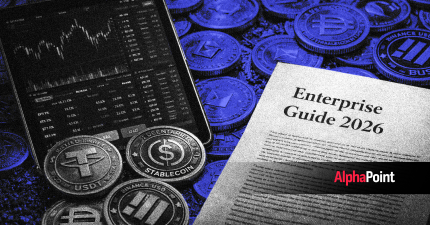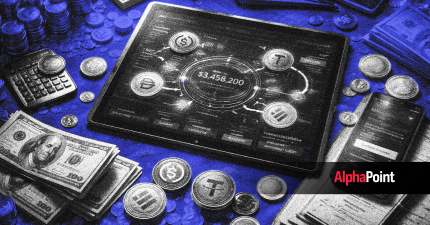What Is a Wallet Address in Crypto?
More and more, digital wallets are playing a role in storing, sending, and receiving digital assets. These wallets are the gateway to your crypto holdings, and at the heart of their functionality lies what’s known as the wallet address. For crypto exchanges, securely handling wallet addresses is extremely necessary for ensuring user trust and maintaining the integrity of every transaction.
As the crypto ecosystem continues to grow — with the global cryptocurrency market expected to reach $4.94 billion by 2030 according to a report by Allied Market Research — understanding wallet addresses becomes increasingly important for both users and exchange operators.
In this post, we’ll explore what a wallet address is, how it works, and how it relates to the world of cryptocurrency.
What Is a Wallet Address?
A cryptocurrency wallet address is a unique identifier that functions in the same manner as a bank account number. It’s a string of alphanumeric characters that represents the source or destination for sending or receiving cryptocurrency.
For example, the string of characters for a Bitcoin (BTC) wallet address might look something like this:
1vS4nTFg7xJaNVN21BvBMEYstWetqFm5Au4G
Each secure blockchain network has its own format for wallet addresses, which makes sure that blockchain transactions are directed to the correct network and prevents accidental transfers between incompatible cryptocurrencies (such as sending Bitcoin to an Ethereum address). This compatibility also enables users to hold multiple types of cryptocurrency in a single wallet.
The Role of Wallet Addresses in Crypto Transactions
Wallet addresses essentially run the operation of cryptocurrency networks. They serve as the public-facing part of your crypto wallet, allowing you to:
- Receive funds: When someone wants to send you cryptocurrency, you give them your wallet address.
- Send funds: To transfer crypto to someone else, you need the recipient’s wallet address.
- Verify transactions: Wallet addresses are recorded on the blockchain, enabling transparent tracking for all transactions.
According to a study by the Cambridge Centre for Alternative Finance, the number of crypto wallet users has grown significantly, reaching 101 million in Q3 2020. The growth of digital wallet usage shows the increasing importance of understanding wallet addresses in the crypto ecosystem, especially as to how they might continue to play a role in the future.
Types of Crypto Wallet Addresses
Below are some of the different types of wallet addresses you’ll encounter in the digital asset space:
Bitcoin Wallet Addresses
The prefix for Bitcoin addresses usually starts with a 1, 3, or bc1. That starting character indicates the address type:
- Addresses starting with “1” are referred to as P2PKH (Pay to Public Key Hash) addresses.
- Addresses starting with ‘3″ are P2SH (Pay to Script Hash) addresses.
- Addresses starting with “bc1” are Bech32 addresses, also known as native SegWit addresses.
Ethereum Wallet Addresses
Ethereum (ETH) addresses are 42 characters long and always start with “0x”.
Ethereum addresses are derived from the public key of the account and are used for all ERC-20 tokens (standardized digital assets) on the Ethereum network.
Other Wallet Addresses
Unique and standardized address formats help prevent users from accidentally sending funds to the wrong address or network. While Bitcoin and Ethereum are the most widely known, other cryptocurrencies also have their own address formats:
- Litecoin addresses typically start with an “L” or “M.”
- Ripple (XRP) addresses are 25-35 characters long and usually start with an “r.”
- Dogecoin addresses often begin with a “D.”
How Does a Crypto Wallet Address Work?
Crypto wallet addresses are created using public key cryptography, which is a method of securing information so only the intended recipient can access it. Cryptography is a process that has been deeply rooted (and is widely used) in modern digital security, from banking to online shopping.
The process looks like this:
- When you create a wallet, a pair of cryptographic keys is generated: a public key and a private key.
- The wallet address is then derived from the public key through a series of cryptographic functions.
- When you want to receive crypto, you share that public wallet address key with the sender.
- If you want to send crypto, you can use your private key to sign the cryptocurrency transaction, proving ownership of the funds being sent.
This system ensures that while anyone can send funds to a wallet address, only the holder of the corresponding private key can actually access and spend those funds.
Safety Tips for Handling Crypto Wallet Addresses at Your Exchange
As a crypto exchange operator, maintaining the security of wallet addresses is vital so that you can protect your users’ assets and maintain trust in your platform. Here are some general best practices to follow:
1. Use Address Whitelisting
Implement a system that allows users to create a whitelist of trusted wallet addresses. This prevents funds from being sent to any unauthorized or unfamiliar blockchain addresses, adding an extra layer of security against potential hacks or user error.
2. Enable Multi-Factor Authentication (MFA)
Require MFA for any transaction involving wallet addresses. This setup ensures that even if account credentials are compromised, an attacker cannot change wallet addresses or transfer funds without an additional authentication factor. According to a report by Microsoft, MFA can block 99.9% of automated attacks.
3. Leverage a Reputable and Secure Wallet Solution
Use a trusted wallet solution that prioritizes security and ease of use. AlphaPoint’s Wallet Solution is an ideal choice for exchanges, offering enterprise-grade security features, multi-signature support, and seamless integration with different cryptocurrency exchange platforms.
4. Educate Users on Address Safety
Provide comprehensive educational materials and training to your users on how to handle wallet addresses safely. This should include guidance on avoiding phishing scams, triple-checking addresses before transactions, and using secure communication methods for sharing addresses that you may be conducting business with.
5. Maintain Strong KYC/AML Procedures
Along those same safety lines, implement thorough Know Your Customer (KYC) and Anti-Money Laundering (AML) procedures to verify user identities and prevent fraudulent activities. This not only helps keep your exchange protected but also builds (and maintains) trust with regulators and your users.
6. Use Address Tagging and Transaction Limits
Put a system in place for tagging specific wallet addresses to particular users and set cryptocurrency transaction limits. This helps keep tabs on and control large transactions that could signal potential risk, ultimately enhancing your ability to proactively detect and prevent suspicious activities.
7. Conduct Regular Security Audits
Finally, it’s a good idea to perform frequent audits of your platform’s wallet address handling mechanisms and overall security infrastructure. This helps identify vulnerabilities and ensures your platform remains compliant with security best practices, especially as threats will likely only continue to evolve.
Maintain Wallet Addresses Securely With AlphaPoint
Global crypto ownership rates are expected to reach an average of 6.8% in 2024 according to TripleA. As the crypto industry continues to evolve — whether it’s in the form of fiat-to-crypto trading, security token offerings, or other means — the importance of secure wallet address management will also only grow. By prioritizing security and user education, your exchange can stay ahead of potential threats and maintain trust among your user base.
With AlphaPoint, it’s easy to protect your customers and their digital assets. AlphaPoint has worked with over 150 global businesses to successfully launch and maintain their crypto efforts through tools like exchange technology, liquidity solutions, custody, yield, and beyond. Our white-label crypto exchange solutions help businesses expand their crypto offerings without hiring or organizing costly in-house resources.
Ready to enhance your exchange’s wallet address security and overall crypto asset management? Request a demo with AlphaPoint today and discover how our cutting-edge solutions can elevate your exchange’s security and user experience.
About the author
Matthew Moss, Director of Product at AlphaPoint, drives innovation for its digital assets infrastructure and white-label trading platform, leveraging over 20 years of expertise in financial services and digital trading systems. Connect with him on LinkedIn.


